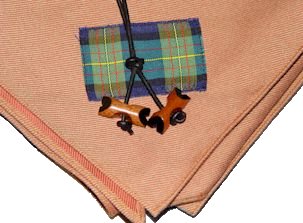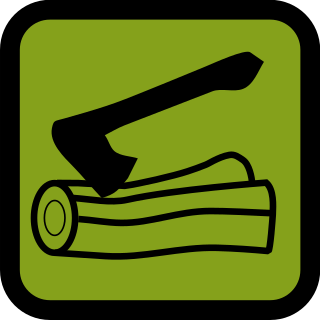Britannia Park is a campsite belonging to Girl Guides Victoria. It is located near Yarra Junction in Victoria, Australia. It is 72 km east of Melbourne. The site covers 42 acres (approx 10 hectares), although the original purchase was smaller.

Melbourne is the capital and most populous city of the Australian state of Victoria, and the second most populous city in Australia and Oceania. Its name refers to an urban agglomeration of 9,992.5 km2 (3,858.1 sq mi), comprising a metropolitan area with 31 municipalities, and is also the common name for its city centre. The city occupies much of the coastline of Port Phillip bay and spreads into the hinterlands towards the Dandenong and Macedon ranges, Mornington Peninsula and Yarra Valley. It has a population of approximately 4.9 million, and its inhabitants are referred to as "Melburnians".
Contents
- Name
- Facilities
- Events
- Southern Cross
- State Camps
- Australian Centenary Event
- See also
- References
- External links
Fundraising to buy the site began in 1934 and continued until 1938. [1] Helen Storrow contributed £100. A competition was held for a typically Australian round, to be sold to raise funds. The winning song, Kookaburra, by Marion Sinclair, was sung at the 1934 Scout Jamboree in the presence of Lord and Lady Baden-Powell.

Helen Osborne Storrow was a prominent American philanthropist, early Girl Scout leader, and chair of the World Committee of the World Association of Girl Guides and Girl Scouts (WAGGGS) for eight years. She founded the First National Girl Scout Leaders' Training in Long Pond, Massachusetts; headed the leaders' training camp at Foxlease, UK; and donated the first of the WAGGGS World centres, Our Chalet.
"Kookaburra" is a popular Australian nursery rhyme and round about the kookaburra. It was written by Marion Sinclair in 1932.

Lieutenant-General Robert Stephenson Smyth Baden-Powell, 1st Baron Baden-Powell, was a British Army officer, writer, founder and first Chief Scout of the world-wide Boy Scout Movement, and founder, with his sister Agnes, of the world-wide Girl Guide / Girl Scout Movement. Baden-Powell authored the first editions of the seminal work Scouting for Boys, which was an inspiration for the Scout Movement.
The opening ceremony was planned to be held in January 1939, with Lord Hampton representing Lord Baden-Powell, the founder of Guiding worldwide. Bushfires in Victoria made this impossible, and the event was rescheduled for September 1939. The outbreak of World War II forced the cancellation of the ceremony entirely. Despite this, the first camps on the site were held in 1939. A large fête called 'Walkabout' had been planned to be held in the Melbourne Town Hall in the same year to raise money for the camp. The fête was held as planned, but the money raised (£1,000) was given to the Red Cross and to the Guide War Work for British evacuee children.

World War II, also known as the Second World War, was a global war that lasted from 1939 to 1945. The vast majority of the world's countries—including all the great powers—eventually formed two opposing military alliances: the Allies and the Axis. A state of total war emerged, directly involving more than 100 million people from over 30 countries. The major participants threw their entire economic, industrial, and scientific capabilities behind the war effort, blurring the distinction between civilian and military resources. World War II was the deadliest conflict in human history, marked by 50 to 85 million fatalities, most of whom were civilians in the Soviet Union and China. It included massacres, the genocide of the Holocaust, strategic bombing, premeditated death from starvation and disease, and the only use of nuclear weapons in war.

A fête, or fete, is an elaborate festival, party or celebration. In Britain, fêtes are traditional public festivals, held outdoors and organised to raise funds for a charity. They typically include entertainment and the sale of goods and refreshments.

The International Red Cross and Red Crescent Movement is an international humanitarian movement with approximately 17 million volunteers, members and staff worldwide which was founded to protect human life and health, to ensure respect for all human beings, and to prevent and alleviate human suffering.














